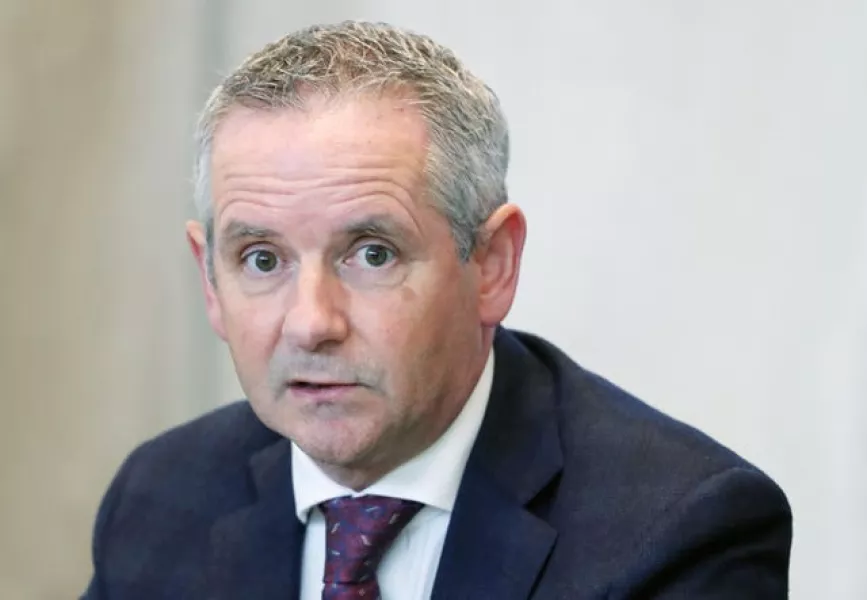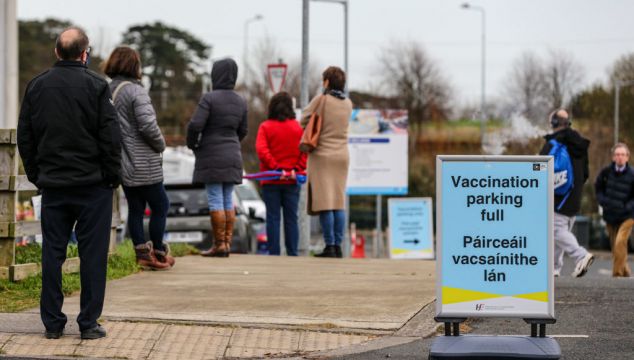The Irish health system can enter the Christmas period with a “sense of hope”, the HSE chief has said.
However, health officials on Thursday warned that the emergence of the Omicron variant had also introduced an element of significant uncertainty despite recent progress.
HSE chief executive Paul Reid said that hospital numbers had stabilised in recent weeks, while the number of people in intensive care was also more encouraging.
“Hope itself isn’t a plan and we will be continuing with the actions we have put in place over the previous two weeks to de-escalate the risks in some of our hospitals,” Mr Reid said.
According the latest figures, 532 people are in hospital with the virus.
As of lunchtime on Thursday, 150 people remain in intensive care units.
Mr Reid said that the country was “stuck” around a figure of approximately 500 to 550 people in hospital.
This was, he warned, “far too high… for hospitals as we head into the winter period”.

While Mr Reid offered more optimistic language compared to recent weeks, he warned that there were potential dangers on the horizon.
“We are still seeing significant demand on our hospitals overall,” he said at a briefing from Dr Steevens’ Hospital.
There has been an increase in the number of people aged 75 and over attending and being admitted to hospital in the past week, he said.
These figures were higher than the equivalent week in 2019 during the peak of flu season, he warned.
Health officials stressed that boosters would remain a key form of protection, against both the Delta and Omicron variants.
It comes amid reports of long waits at some vaccination centres on Thursday, as people queue for a booster jab.
Individuals aged 50-59 can now come forward for a booster jab, with the HSE hoping that the majority will have received either a jab or an appointment for a vaccine by the end of the year.
Mr Reid urged people to come forward for a booster jab, as HSE chief clinical officer Dr Colm Henry warned that a lot remains unknown about the new variant.
Currently, one case of the Omicron variant has been confirmed in Ireland.
Mr Henry said that a number of suspect cases are being investigated, but said health officials are under no illusions that more cases will soon be confirmed.
Mr Reid said that he expects the number of Omicron cases to rise significantly, with the expectation that it will become the dominant strain of the virus.
“No reassurance can be taken now at the low levels that we’ve identified here,” he warned.
“We’ve seen what’s happening in the UK. We expect it’s only a matter of time before we are looking at significant numbers of cases phases of Omicron.”
Health officials also promised that gene sequencing capacity was now being expanded in Ireland in order to better identify the worrying new variant.
The wider Irish testing system also remains under pressure, with significant numbers of people still coming forward for tests.
According to the latest figures from the HSE, one million tests have been carried out in under six weeks, with the HSE carrying out 200,000 swabs a week.
Three new testing centres were opened in Athlone, Swords and Leopardstown last week, with the HSE hoping that testing capacity can reach 245,000 tests a week by the end of December.
On Wednesday, the National Immunisation Advisory Committee (Niac) recommended to Government that jabs should be offered to around 480,000 primary school children.
The state’s vaccine advisory body signed off on their use, with the rollout expected to take place from next month.
Health officials said that the rollout would be complex and would involve a significant communication campaign to parents, with the vaccination programme beginning properly in January.
Mr Reid admitted that it would be “complex” to identify the children who NIAC has recommended be made a priority, while also preventing any slackening of pace in the wider booster programme.
“We know we need some dedicated centres for it,” Mr Reid said.







